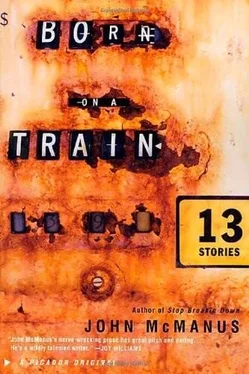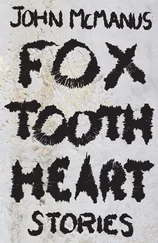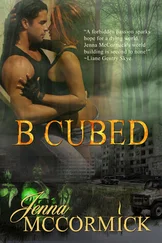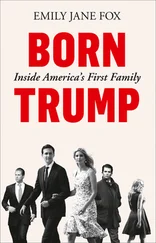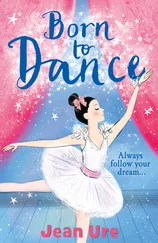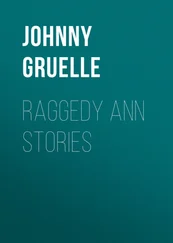John McManus
Born on a Train: 13 Stories
Mom: You gonna go live with your father?
Austin: No. We’re going to a different desert, Mom.
Mom: I see. Well, you’ll probably end up on the same desert sooner or later.
— Sam Shepard, True West
Libby is also the name of a Confederate prison, two hundred miles east of here. It is short for Elizabeth, my middle name. Conditions there were marginally improved, says the calendar in Hiram’s bathroom, but overcrowding remained the norm. Hiram is an old man’s name, but his name on-line was Wheatboy. I had a list of all their names until I left my journal in California where Richard may be reading it now, learning what I thought of him, which I don’t anymore, because he’s much too far away.
On our third night at Hiram’s house, I stood by the kitchen window listening through the wall as Mother spoke into the cordless phone on the back porch with a tissue to her nose. Hiram and his sons were asleep and snoring. I’ll be so embarrassed if I have to leave again so soon, said Mother. I knew I should have picked the one in Georgia.
Ten seconds of silence.
The other one, she said. The freelance writer. No, you don’t know that.
Five seconds of silence.
She’ll see that no one loves me, Mother said. It’s already happening. I feel so ashamed when she looks at me.
Silence.
I’m just doing this so she’ll be happy, Mother said.
The blaring from the earpiece was finally loud enough for me to hear, although it wasn’t language, only sound.
Polly, Mother said, if you were here I’d slap your face. She switched ears and leaned her head against the phone. Aunt Polly works with the Peace Corps in Uganda, where it isn’t even winter, where the sun was maybe rising as she spoke. Hiram’s a good man, Mother told the phone, and I like him a lot. She knocked her head against the glass twice as Polly spoke, and when she hung up she turned around and saw me through the open window. It’ll work out fine this time around, she said to me. Whatever I say.
He buys you things, I said.
She nodded. That’s one of the reasons it’ll work out. He’ll buy you things, too.
Hiram hasn’t worked for several years. He sued a boy over a fender-bender and won a hundred thousand dollars, and he sued a Mexican restaurant for habañero pepper salsa that burned his stomach up, he said, and all inside his throat. He’s suing now to make the neighbors cut down four magnolia trees that block his mountain view, because the house was there before the trees were ever born.
His three sons all have bright red hair. Eammon is six months older than me, with a driver’s license.
Just think if we’d known him when he was thirty, Mother said on the fifth day.
You would have been my age, I said.
I mean if we were the same age, she said.
He could be your father, I said.
No, she said, I was born in Walla Walla. Hiram’s never been out west before. She peered through the blinds and sighed. The landscape looks so different here, she said. The little ways.
I shook my head and said, He’s forty-seven.
And I’m thirty-two.
Plenty of fathers are fifteen years old.
Name one, she said. Name one father.
I don’t know any, I said.
I’m glad you’ve still got your sense of humor.
It’s amazing how it stays there all over the country, whatever boyfriend it is.
I never knew about any boyfriends, Mother said.
Yours, I said.
Don’t yell at me, she said.
I never had time to find one.
It’ll be easier once you start up school again.
I’ll go to school the next place, or the place after.
You’ll go to school here, she said.
We’ll be gone in a week.
Oh honey.
You don’t even know the name of the school here.
It’s named after a war hero, or somebody, or a founding father.
You don’t know the governor. You don’t know the mayor or the sales tax or the zip code.
We’ll learn all that together, she said, trying to smile. When she stroked my cheek, I backed away and left the room and went to read my book. On our way to Virginia, Mother had bought me a field guide to birds so I could educate myself. The birds inside are rusty, green, raw umber. Hiram doesn’t know it’s the rufous-sided towhee singing drink-your-TEA each morning in the trees. Few birds display such geographical variation in their voices. Birds squawk at Hiram’s dog, which makes it very sad. The dog lay at my feet as Mother flipped through the book and laid it on her lap and squinted and asked me what raw umber means.
It’s a crayon, I said.
No, it’s a bird.
I shrugged.
They probably meant lumber, she said.
They meant umber, I said.
I suppose you know, she said.
You’re the one who bought it.
We’re not talking about the crayons, she said. We’re talking about lumber.
Lumber can’t be raw, I said.
Of course it can be raw, she said. Anything can be raw.
Like what?
Like a stupid old mutt, she said. It was silent when Mother kicked its belly, because it wasn’t a fighting dog. I don’t know why Hiram picked a dog that wasn’t in the war. He doesn’t take it to his reenactments. He doesn’t act like real soldiers, who raped and pillaged like the cowbirds. No one knows why cowbirds became brood parasites, laying their eggs in the nests of other birds. Perhaps they followed bison herds for so many million years that they never had the time to build nests of their own.
Let’s rearrange the furniture, Mother said.
Jackson and Leroy, the younger boys, came downstairs as Mother pushed the hassock to the wall. They stopped at the landing to watch her unplug the lamps. Jackson’s lips and tongue were purple from a Dum-dum. I imagined cutting off his head and switching it with Leroy’s, just like Mother was switching the two coffee tables with each other.
Aren’t you going to help? she said to me.
I like the furniture the way it is, I told her, but I didn’t like it at all, either way. Leroy whispered in Jackson’s ear. They grinned at me together. Mother folded up the bearskin rug and carried it outside to shake it free of dust by its flat, clawless legs.
Eammon said, said Leroy.
Sshhh, said Jackson.
He said to ask her.
Only if we want to.
We’re spose to.
Ask me what? I said.
What thirty-six twenty-four thirty-six is.
It’s a song, said Leroy. Eammon said you’d know what it means.
Eammon wants to know? I said.
Leroy nodded as Jackson shook his head no.
It’s a rock song, said Leroy.
Then you know what it is, I said.
What is it?
It’s a song.
Horses galloped across the pastel prints on the living room wall. We had another sister once like you, said Leroy.
She had purple pants, said Jackson.
They were pink, said Leroy.
What happened to her? I asked.
It was her mama, Jackson said.
What was her mama?
It was her mama that it happened to, said Leroy.
The young cowbird grows quickly, at the expense of the host’s young. It steals most of the food. Sometimes it even pushes the other babies out of the nest. Every third stair creaked beneath my feet as I took loud, intrepid steps to Eammon’s room where he sat at his rolltop desk hitting his keyboard with his fist. That’s smart, I said to him, and he swiveled around in his chair and grunted, looking startled.
I pointed to his books and said, You reading those?
He pointed to my eyes and said, You always wear that shit?
A cowlick rose up from his pixie cut like an arrow toward old webs that dangled from above. I felt my hair for fallen strands of them. Eammon saw what I was doing and said, Things was cleaner in Eureka, and I wasn’t sure if it was a question. I didn’t see why he ever would have been out there himself. Are you much like your mom? he asked, and when I didn’t answer, he said, You find you a computer man here, too?
Читать дальше
